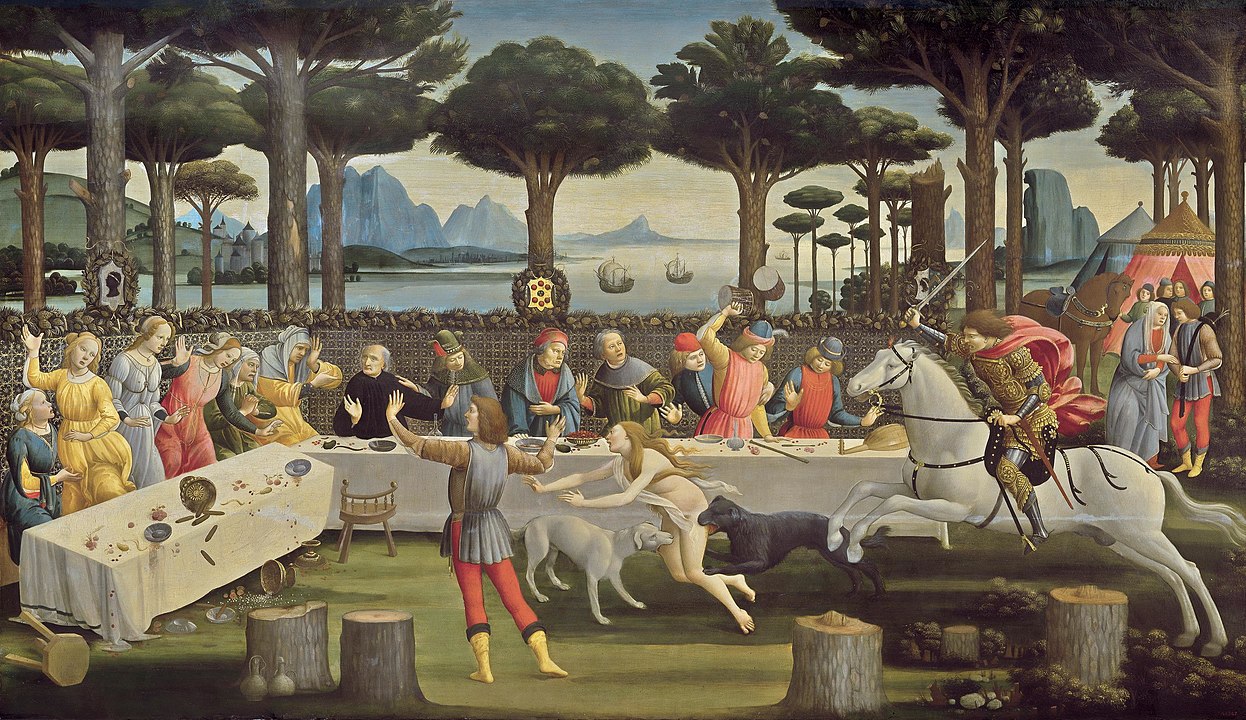By Bryan Gentry, brgentry@sc.edu | October 15, 2020
This story might sound familiar: Upon discovering a new, rapidly spreading disease, some people separate themselves from the world as much as they can. Others frequent bars and restaurants. Some try staving off the plague's emotional toll with religion, others with revelry. Cities cut off travel, but the disease spreads.
A little too 2020? It’s actually the mid-1300s, as described in The Decameron, Giovanni Boccaccio’s classic work about the Black Death, the pandemic in which the bubonic plague killed nearly two-thirds of Europe’s population.
The comparison struck University of South Carolina student Alec Parry when he read The Decameron recently for a class about the literature of pandemics.
“I thought there'd be more differences,” Parry says. “But people haven't changed very much as far as their reaction to the pandemic.”
Agnes Mueller, the professor teaching “Pandemics in Literature,” agrees.
“When it comes to an existential threat such as illness that we can't control, we still react in in similar ways: anxiety, trying to escape, trying to make sense of it, imagining worst-case scenarios," Mueller says. “Those are all patterns that occur, and that's incredibly fascinating to me.”
It’s given me hope that if the authors and their peers could persevere, we can too.
— Celeste Johnson
 "A Tale from The Decameron" by John Williams Waterhouse
"A Tale from The Decameron" by John Williams Waterhouse
Mueller, a professor of German and director of the Global Studies program in the College of Arts and Sciences, started re-reading The Decameron this spring as the COVID-19 pandemic spread around the world. She decided she wanted to explore the topic with her students. She offered “Pandemics in Literature” as a South Carolina Honors College course open to graduate students in German. The class filled up quickly.
“It sounded relevant, and like a fun course,” says Parry, who is earning his master’s degree in German.
Celeste Johnson, an anthropology major, chose the class to fulfill an Honors College English requirement. “This class really caught my attention,” she says. “It’s obviously very relevant to life right now, and all the books on the reading list for the semester seemed really interesting.”
Literature lets us see moments in history. ... How have people dealt with this in the past? That can tell us something about how we should move forward.
— Agnes Mueller
The class is covering a wide range of literature, from The Decameron, in which a group of people in quarantine entertain each other with stories, to Stephen King’s The Stand, in which a weaponized flu virus wipes out most of the world’s population.
In a recent class session, they compared and contrasted Mary Shelley’s The Last Man, a dystopian tale that concludes with the main character wandering the world in search of other survivors, to Jack London’s The Scarlet Plague, which focuses on a pandemic survivor who hopes to reestablish civilization through education.
"We have those positive stories, and that’s helpful in trying times,” Mueller says. “It really has put it into perspective and reminded us of all the ways people before us have suffered, and also how they have escaped their suffering.”
Johnson says that The Last Man has become one of her favorite books. It helps that she enjoys literature from the Romantic period, but the characters were well developed, too, she says. “Although the story is quite tragic, it’s very interesting and heart wrenching,” she says.
She sees a lot of parallels to the current pandemic.
“Studying the literature of pandemics while living through one has been very interesting," Johnson says. “It’s easy to relate to a lot of the themes in the works we read: the confusion, the hopelessness. But it’s also quite lovely to think that even in times of chaos and plague, people created beautiful works of literature to teach future generations about what they went through.
“It’s given me hope that if the authors and their peers could persevere, we can too.”
Mueller says that is one of the points she hoped students would pick up in the course.
“Literature lets us see moments in history,” she says. “It's like you shine a flashlight or a spotlight on those moments. That's how I would think of the literature of pandemics: How have people dealt with this in the past? That can tell us something about how we should move forward.”
 Sandro Botticelli's "The Feast in the Forest" illustrates a story from The Decameron.
Sandro Botticelli's "The Feast in the Forest" illustrates a story from The Decameron.